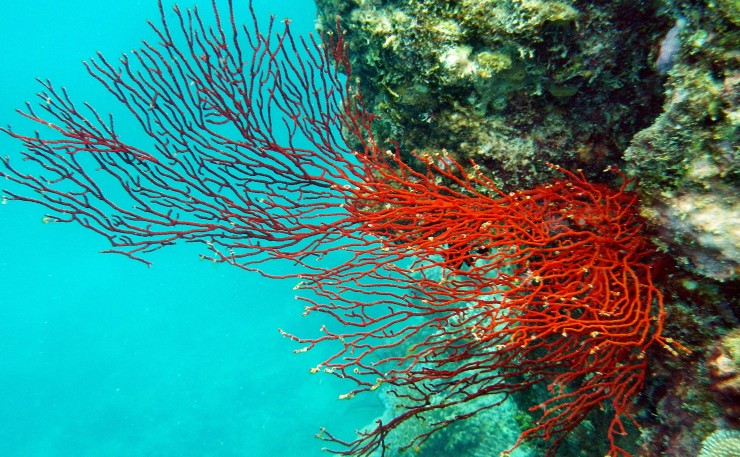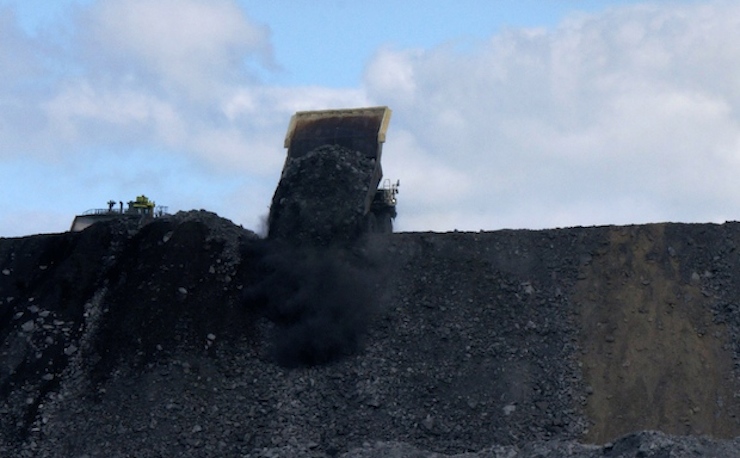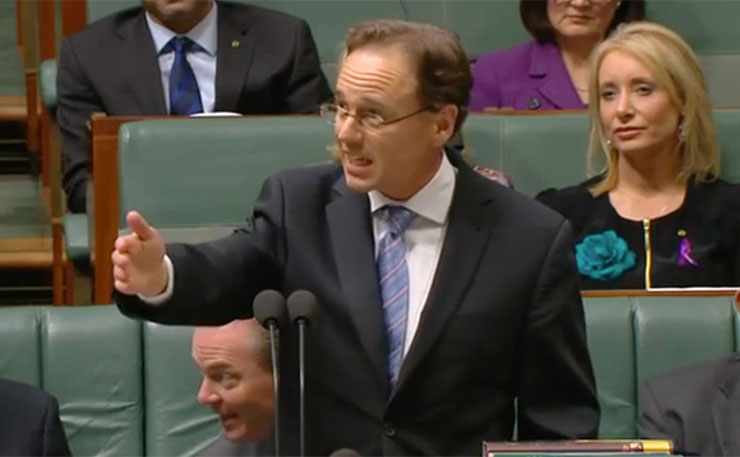Indian coal miner Adani only just won back the environmental approval for its Carmichael coal mine, but now it won’t know whether it’s got the green tick until next year, at the earliest. Thom Mitchell reports.
The Australian Conservation Foundation has applied to the Federal Court this morning to challenge the Commonwealth approval of Indian company Adani’s massive Carmichael Coal Mine, a $16.5 billion project proposed for Queensland’s Galilee Basin.
The Carmichael coal mine would be the largest Australia has ever seen, and it would create four times the carbon emissions of New Zealand each year once the coal is burnt in third-party countries.
ACF will argue in court that Environment Minister Greg Hunt failed to consider whether the climate pollution the mine will create will clash with Australia’s obligations to protect the Great Barrier Reef under the United Nations’ World Heritage Convention.
Government scientists recognise global warming as the greatest long-term threat to the Reef, which ACF President Geoff Cousins said “will soon be gone if we allow climate change to keep accelerating”.
“Coral reef scientists are telling us in just a few decades warmer waters could bleach the Reef beyond recognition,” Cousins said. “This would be a tragedy for Australia and the world.

“Tragedy” has already been averted by legal action once, when Minister Hunt’s first environmental approval was rescinded following court action initiated by the Mackay Conservation Group.
Before that case went to trial, government solicitors conceded Hunt did not properly apply national environmental law by failing to fully consider the impact that the Carmichael coal mine would have on two endangered species.
The approval was re-issued within months, but the then-Abbott government reacted angrily to the setback. Attorney General George Brandis mounted a public campaign against environmentalists, and sought to restrict the community’s ability to challenge decisions of the Environment Minister to only those people ‘directly affected’ by a project.
The changes were shelved after Malcolm Turnbull took the top job, and the reporting date of a Senate Committee tasked with investigating the government’s Bill to restrict legal standing has been extended from October 2015 out to February next year.
Brandis had criticised legal actions against major developments as ‘vigilante lawfare’ purely designed to stall new coal mines, but Cousins said ACF has launched “legitimate legal action in the public interest” and that the ability to bring such cases “is central to keeping governments accountable in a democracy”.
“This action is historic; it’s the first case that has sought to test the Environment Minister’s World Heritage obligations as they relate to the climate change impacts on the Reef caused by pollution from burning a mine’s coal,” Cousins said.
“If this case is successful it will strengthen climate change considerations and World Heritage protection in Australian law.”
Public interest lawyers at the Queensland Environmental Defenders Office will represent ACF, and Principal Solicitor Sean Ryan said that “the grounds for review include one in relation to the threatened Black-throated Finch, and three in relation to climate change and the Reef”.
Good luck @AusConservation! #blackthroatedfinch #extinctionlikely if mine goes ahead https://t.co/YqdahyufND pic.twitter.com/q9khrhHIqC
— Samantha Vine (@Samantha_Vine_) November 9, 2015
“The question,” Ryan said, “is has the Environment Minister properly applied this legal obligation when considering the impacts of the burning of coal from this mine on the Great Barrier Reef?”

The project has been in the works for more than half a decade, and is still without a state approval, but it is widely acknowledged that the greatest challenge Adani faces is securing finance in the face of an exodus from major banking institutions.
“Queensland treasury officials have called the mine “unbankable” and 14 international banks have said they won’t fund the project, which still needs $16 billion to proceed,” said Shani Tager, Greenpeace Australia Pacific Reef Campaigner.
Notwithstanding these financial challenges, she said that it’s up to responsible governments to protect the environment.
“It’s clear that they cannot be relied on to make decisions in the best interests of the community and the environment, so this legal challenge by the Australian Conservation Foundation is crucial,” Tager said.
“If Minister Hunt and the Turnbull Government were serious about protecting the environment, they would have rejected this mine the first and the second time it came across their desks.
“They want a 28,000-hectare coal mine which will be responsible for 120 million tonnes of carbon dioxide every year, and require millions of tonnes of seafloor in the Great Barrier Reef World Heritage Area to be dredged.”
The Environmental Defenders Office expects a directions hearing to take place in the next month and for the full case to come before the Federal Court in early 2016.
Donate To New Matilda
New Matilda is a small, independent media outlet. We survive through reader contributions, and never losing a lawsuit. If you got something from this article, giving something back helps us to continue speaking truth to power. Every little bit counts.






